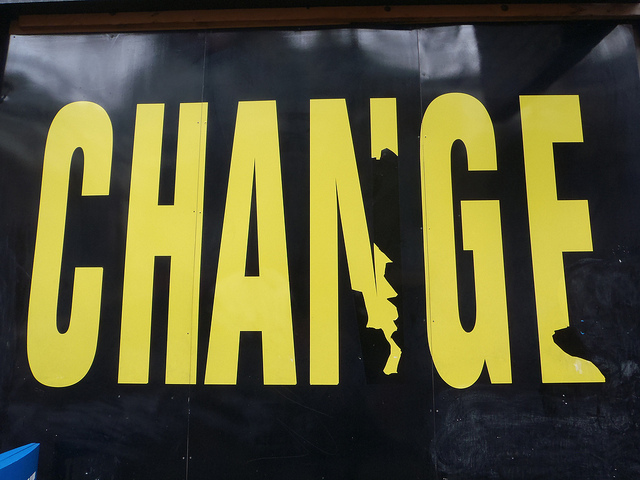 Guest post by Kirk Hazlett, APR, Fellow PRSA
Guest post by Kirk Hazlett, APR, Fellow PRSA
I stumbled into the field of public relations some 40-plus years ago so …
The obvious … and first … response is “a lot.” After all, when I was a public affairs intern working for the US Army a million years ago, a remarkable piece of technology appeared that made it possible to transmit the written word via a telephone line to remote and exotic locales. Yes, I was alive and kicking when the fax machine altered the way in which we communicated!
But then I get serious with those who truly are interested and say that, in terms of objectives and strategies, nothing has changed.
Our objective for a client or employer remains the same.
Build awareness … foster mutual understanding … inspire behavioral change.
How we get there is what is different to a great degree. The “tactics” that we employ to accomplish any or all of this continue to evolve. The clay tablets and papyrus proclamations have morphed into tweets and podcasts.
Another change – closely tied to the tactics employed – is the longevity of the message.
Where, in the “good old days,” both good and bad news would sink in visibility as other, more current news and events would surface, today, thanks to the relative permanence of Internet-based communication, the old news lives on, in archives, as mentions in blog posts, and elsewhere. And, inevitably, it will bubble up … usually when you least expect it and really would prefer that it not do so.
What does this mean for those of us who, as communicators, counsel others on their words and their actions?
It means that we truly do have to take the long view.
“How will this ”˜play’ five years from now?”
“What message do we want those who see this bit of ”˜history’ to take away?”
“What good or harm can come from a reminder of something that occurred ”˜back then’?”
And, to me, a more important consideration should be, “What have we done as an organization to strengthen our stakeholders’ confidence in us at this point in time?”
Nothing is more damning, in my opinion, than for someone to be reminded of a misstep on the part of my organization years down the road and to discover, on closer inspection, that nothing has changed. That it’s “business as usual.”
Corporate social responsibility must become part of the organizational DNA, led by the public relations professional who inherently understands public awareness, public perception, and public opinion.
We as professional communicators must be willing to stand up and urge our clients or employers to hold themselves accountable for their actions and operate in the best interests of our stakeholders.
Because if we don’t, a year later … or five years … or longer … someone will read or hear something about us and be reminded.
What will the message be?
Image: busy.pochi via Flickr, CC 2.0


![[EVENT]: PR Hacks for Small Biz (online)](https://shonaliburke.com/wp-content/uploads/2021/06/FB-Ad-1200x800-01-01-01-Copy-500x383.jpeg)






I loved this post, Kirk. It reminded me of Tylenol and how they handled that crisis which has become such a great case study. You can’t buy that kind of trust, right? Great post, and thank you so much for writing it!
@theprcoach I thought @KirkHazlett did an absolutely terrific job with that one. Thank you for sharing!
@shonali @KirkHazlett he did a great job; glad to share Shonali
@theprcoach Thanks very much for the kind words, Jeff!
@ThePRCoach http://t.co/azkeozlM
[…] jQuery("#errors*").hide(); window.location= data.themeInternalUrl; } }); } http://www.waxingunlyrical.com – Today, 7:55 […]
@soulati @bdorman264 Thanks!
@Fiskey Thanks for the mention, Rosanna!
@Todder4News love your hashtag for @kirkhazlett piece. It’s really interesting how some thing the rules are different. Ummm how?
I too come from the dark ages and started my career with a typewriter and mimeo machines for newsletters. The fax machine came later. I was working on a political campaign when I first saw faxes. It was an amazing way to communicate with DC.
I agree with you that the principles of PR have generally remained the same. Many of the tools we use are quite different…and the tried and true ones also come in handy. The most important thing for any PR/comm/marketing/whatever pro is to be strategic and know where you’re trying to go. It really doesn’t matter if you tweet, give a speech, or deliver a press release. If you don’t know why you’re doing it, you’ll never know if you succeeded.
Fairly simple really but we often get caught up in the labels and the details. Stepping back and looking at the big picture and the future is critical.
Thanks for the trip down memory lane, and making me think today.
@mdbarber
What I always remember, Mary, is a comment by a member of, I believe, the Nixon White House communications director…(paraphrased) “Plan in terms of what you want the headline to read.” I tend to think a little longer term than that, but the idea’s the same…know what you want to accomplish with your action(s).
@mdbarber Thanks for the mention, Mary! “Mimeo machines”?!? Haven’t heard THAT one in a while! :-)
@KirkHazlett Yep. Remember scraping typos with the razor blade? And there was one w purple stuff you painted over the typo. Ah…the memories
@KirkHazlett Yep. Remember scraping typos with the razor blade? And there was one w purple stuff you painted over the typo. Ah…the memories
Are you of an integrated mindset? The lines have blurred, and there really are few pure PR’ists any longer. I started that way as an agency brat in Chicago (I have 27 years, so just behind you!), but found the need to migrate towards marketing a very long time ago. The onset of social marketing has further pushed that requirement.
@Soulati | PR
When I started out, the three disciplines were operating on three separate planets. Over time they…and I…have come to an agreement on how we will, can, and must work together. I saw the benefits of integrated operations most clearly when I worked for the US Army Recruiting Command (I was the PR guy in the Boston District Advertising & Sales Promotion branch) and at the Blood Bank of Hawaii (I managed both the advertising and the PR operations). Campaigns were much more clearly focused and mutually supportive…and they worked marvelously! Social media has added even more emphasis to the need for cooperative operations.
@sandrasays @ericamallison @kmueller62 @soulati Thanks for sharing @KirkHazlett post!
In middle school I had a teacher talk to us about reputation and how it follows you. In college, a professor reminded my class of the same thing. It’s something that’s always stuck with me. Your reputation as a person and as a company is long lasting and hard to change, and even more so now. I just recently had a chat with my younger cousin about this same topic in reference to the online footsteps of the kids growing up now and how it matters. It of course is ten fold with a business. Your reputation is paramount and you must DO what you SAY you do and DO things because you genuinely care not because you want to look good…in the end everyone will find out either way.
@rachaelseda
Thanks for your feedback, Rachael. As the old IRS joke goes, “You can run, but you can’t hide.” Your reputation WILL follow you and, as you say so well…”in the end people will find out either way.” I think I’ll stick with ethical behavior and open, honest communication!
Great post Kirk. I think too many companies view PR as the people who will hide their bad behavior. This is similar in Advertising. I can get you to try a product but if it sucks don’t blame me that they don’t return.
I think of big companies that instead of behaving ethically decide it is cheaper to hire an army of PR folks to bury the bad behavior. Walmart is excellent at this. If people really cared about ethical practices they would be out of business. But people think ‘It is cheap and convenient’ lets forget the community cost here and overseas, the fact that half their employees work below the poverty line, and all the pollution caused shipping cheap goods back and forth. Walmart is a big employer. They bring jobs and cheap stuff.
I bet the PR cost is way less than if Walmart behaved properly. How can we change this? Isn’t the PR world happy to have this going on because it generates revenues? I think the same with my Advertising Industry during election season. The Media Outlets should reject hate ads and lying ads but nope…they greedily take the money.
@HowieSPM
You’re right to some degree, Howie, in that there still are…and most likely will continue to be long after both of us have gone on to that great unknown…those who will choose not to conduct their business ethically. We can only hope that those entities will, in the end, get their just rewards. In the meantime, let’s salute those of our colleagues who DO care and make us proud! Thanks for your feedback and for your retweet this morning!
Great post Kirk. I think too many companies view PR as the people who will hide their bad behavior. This is similar in Advertising. I can get you to try a product but if it sucks don’t blame me that they don’t return.
I think of big companies that instead of behaving ethically decide it is cheaper to hire an army of PR folks to bury the bad behavior. Walmart is excellent at this. If people really cared about ethical practices they would be out of business. But people think ‘It is cheap and convenient’ lets forget the community cost here and overseas, the fact that half their employees work below the poverty line, and all the pollution caused shipping cheap goods back and forth. Walmart is a big employer. They bring jobs and cheap stuff.
I bet the PR cost is way less than if Walmart behaved properly. How can we change this? Isn’t the PR world happy to have this going on because it generates revenues? I think the same with my Advertising Industry. The Media Outlets should reject hate ads and lying ads but nope…they greedily take the money.